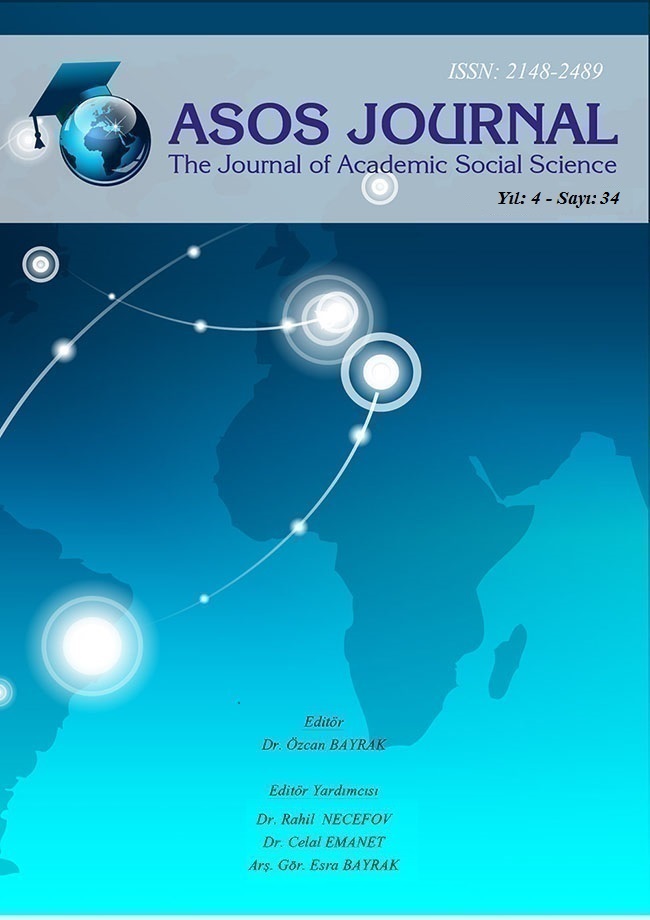DİN KÜLTÜRÜ VE AHLAK BİLGİSİ ÖĞRETMEN ADAYLARININ BÖLÜMLERİNİ TERCİH SEBEPLERİ VE MESLEKİ GELECEKLERİNE YÖNELİK BEKLENTİLERİ
Author :
Abstract
Öğretmenlik, ülkemizde çok yakın geçmişe kadar saygı duyulan bir meslek olarak düşünülmekteydi. Ancak, son yıllarda eğitim sistemimizde yaşanan bir takım aksaklıklarla birlikte mesleğin saygınlığı azalmış ve tercih nedenleri değişmiştir. Programı sürekli değişen Din Kültürü ve Ahlak Bilgisi (DKAB) öğretmenliği bölümünün geleceği hala tartışma konusudur. Bir dönem Eğitim Fakültesinde yer almakta olan bölüm, 2012 yılından itibaren İlahiyat Fakültesine alınmış olup, bu isimle son öğrencilerini vermektedir. Bu çalışmada DKAB öğretmenliği lisans programında okuyan öğretmen adaylarının meslek tercih nedenlerinin ve geleceğe yönelik beklentilerinin araştırılması amaçlanmıştır. Araştırmada nitel araştırma yöntemlerinden durum çalışma deseni kullanılmıştır. Araştırmanın grubunu 2015-2016 öğretim yılında Nevşehir Hacı Bektaş Veli Üniversitesi İlahiyat Fakültesi DKAB bölümünden gönüllü olan 20 öğretmen adayı oluşturmaktadır. Veri toplama aracı olarak yarı yapılandırılmış görüşme tekniği kullanılmış ve veriler içerik analizi ile çözümlenmiştir. Öğretmen adayları her soruya birden fazla cevap verdikleri için, frekans hesaplarında öğretmen adayı sayısı değil de, verilen cevap sayısı dikkate alınarak yüzdeler çıkartılmıştır. Görüşme tekniği ile elde edilen nitel veriler sayısallaştırılarak frekans ve yüzdelikleri elde edilmiştir ve yorumlanmıştır.
Keywords
Abstract
The education in our country was considered a respected profession until very recently. However, the prestige of the profession reduced and the preference reasons has changed with a team experienced failures in our educational system in recent years. The program of Religious Culture and Moral Knowledge (religious education) is constantly changing and is still debate the future of this teaching department. This department is located in a recent semester in the Faculty of Education, from 2012 until now department is taken into the Faculty of Theology and gives the last student with that name. In this study, it has been aimed to investigate the profession’ choises and the prospects for the future of teacher of religious education in the degree program. The qualitative research method, case study research design was used. The study group has been constituded by voluntary religious education department teacher candidates from Haci Bektas Veli Nevsehir University Faculty of Theology in 2015-2016 academic year. Datas were collected by using semi-structured interview technique and datas were analyzed by using content analysis. The teacher candidates gave more than one answer to each question, for that the frequency calculation was enacted rather than the number of teachers percent considering the number of responses. Qualitative datas obtained by interview techniques digitized by frequencies and the percentages were obtained and interpreted.





